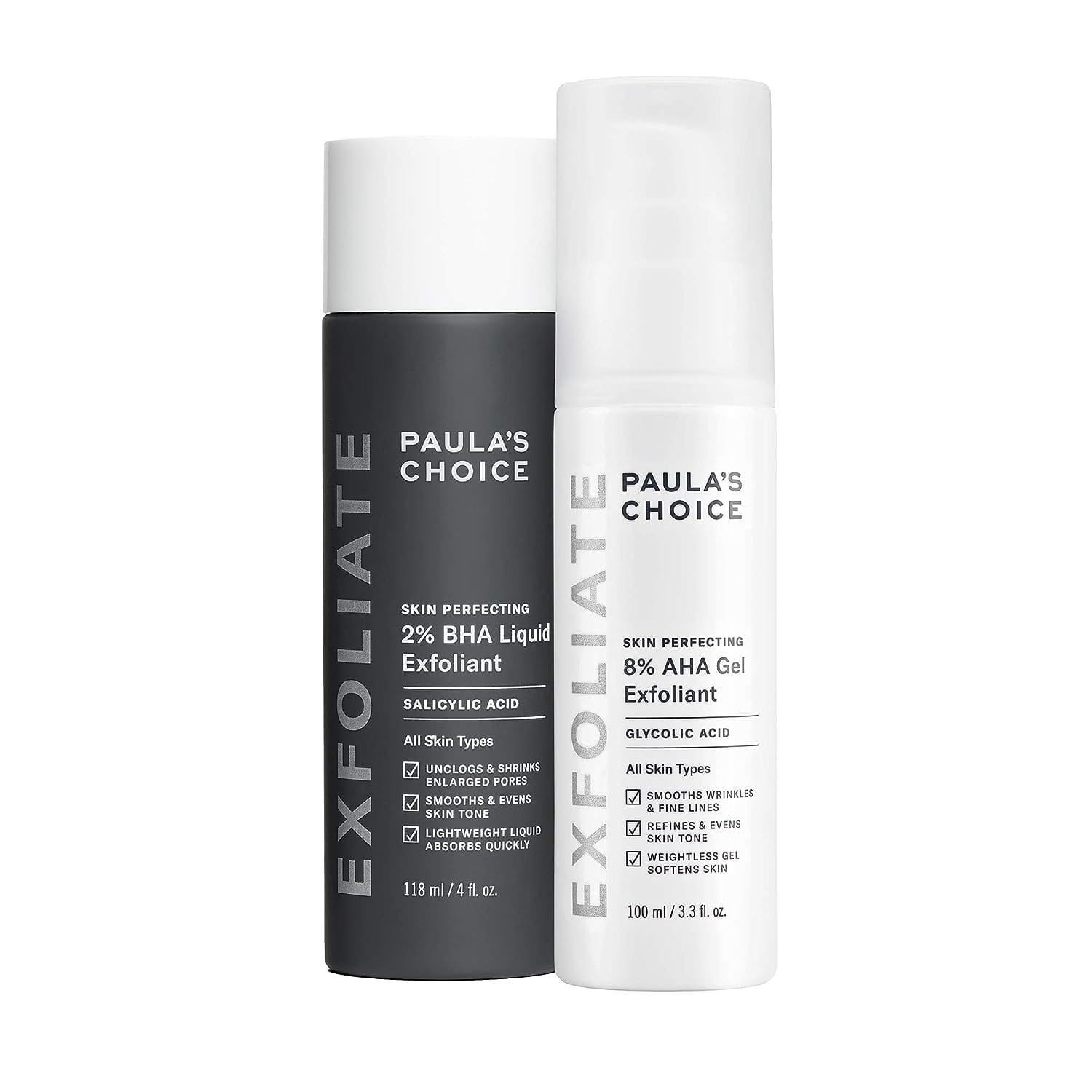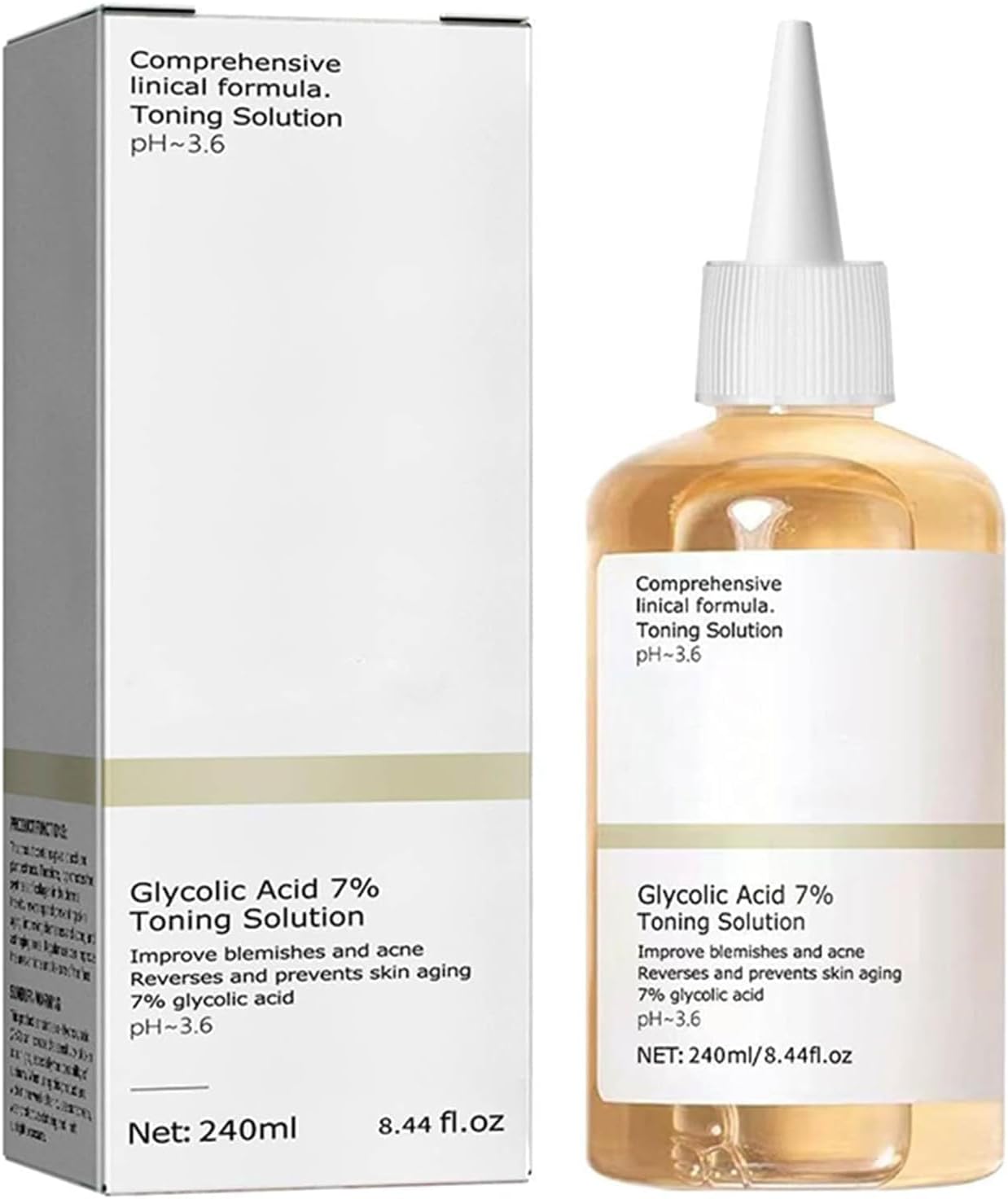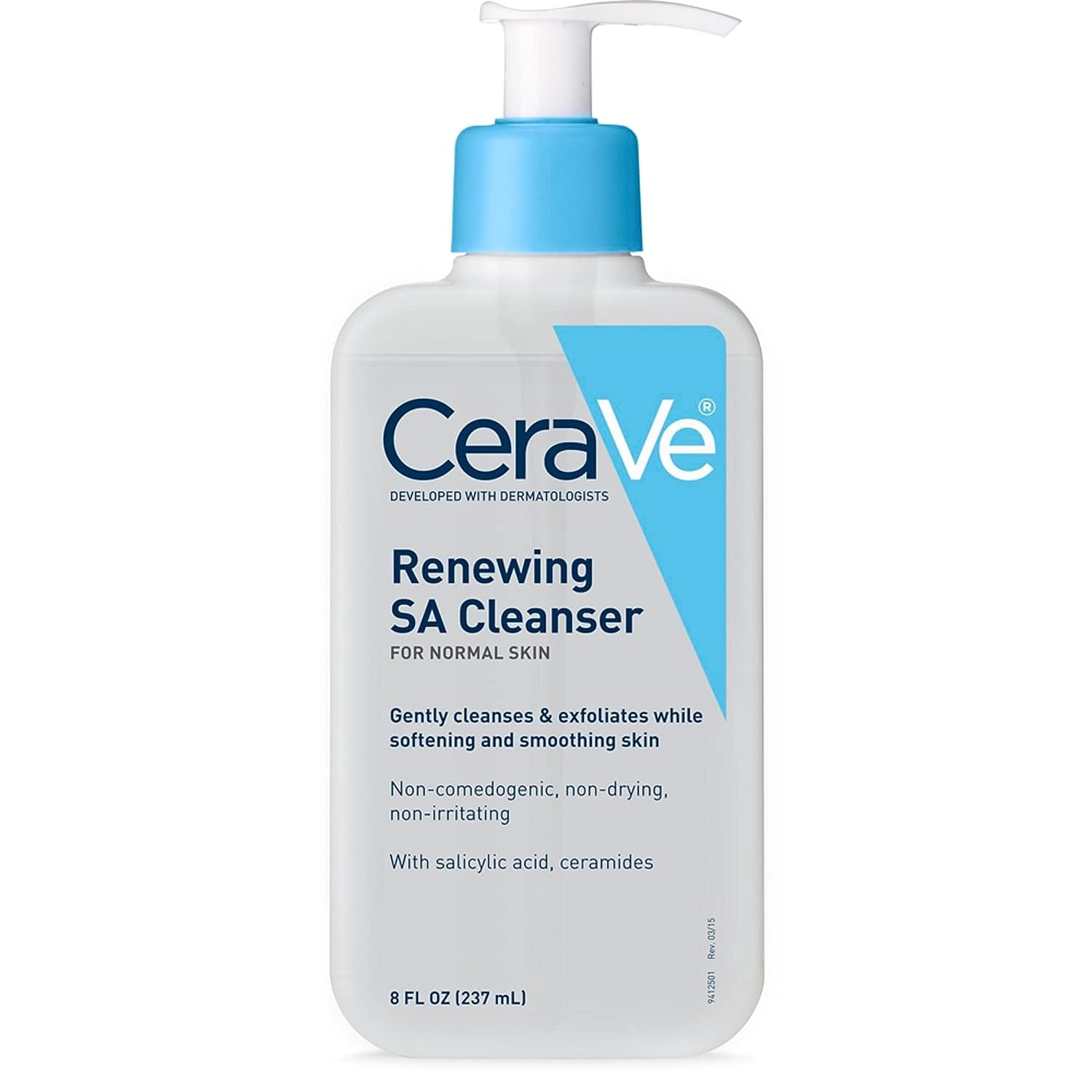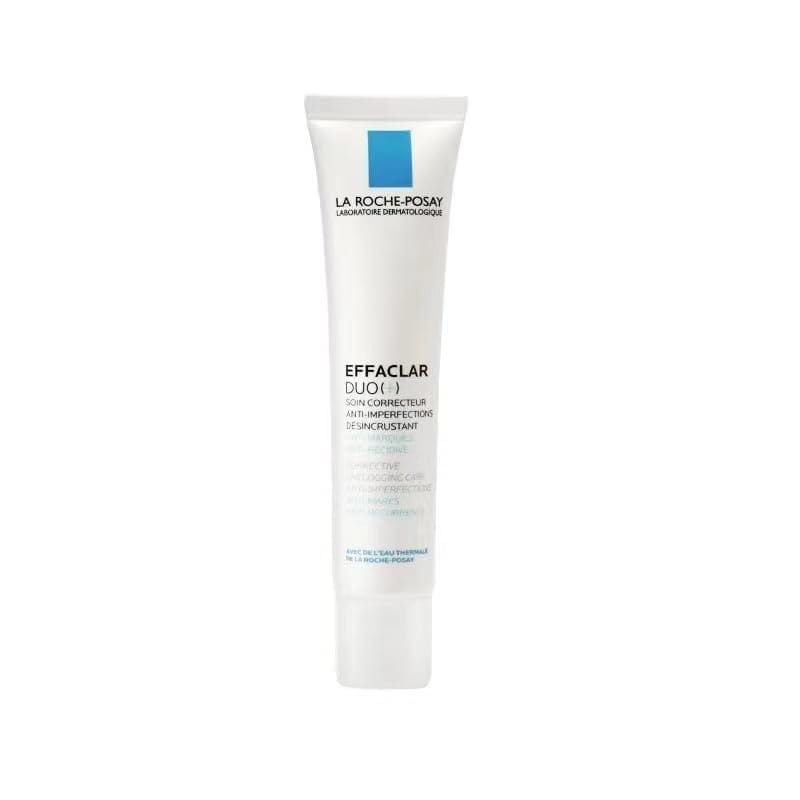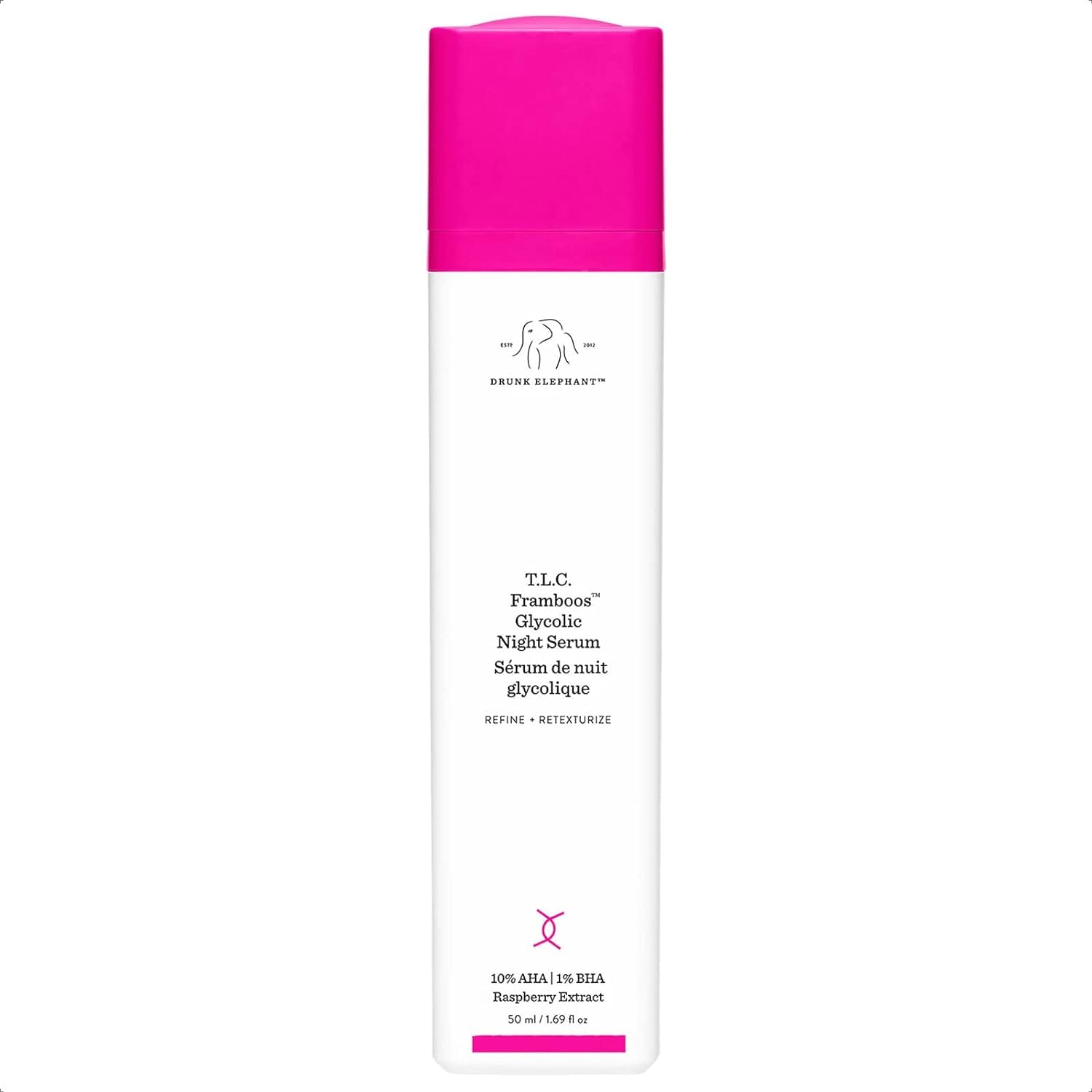Top 5 BHA or AHA Skincare Products for Acne-Prone Skin in 2024 to Clear Breakouts

Discover the top 5 AHA and BHA's to effectively clear breakouts and leave your skin looking its best. Skincare products review for acne-prone skin in 2024.
Acne-prone skin requires special care to maintain its health and clarity. In 2024, there's an array of skincare products tailored to address acne concerns effectively.
Introduce these compounds by using from cleansers to exfoliants and serums, products that harness powerful ingredients to combat acne while promoting a smoother, clearer complexion.
In this article, we'll explore the top skincare products for acne-prone skin, highlighting key ingredients, benefits, and essential considerations.
Understanding Acne-Prone Skin
Acne is a common skin condition characterized by the formation of pimples, blackheads, and whiteheads. Acne-prone skin tends to be more susceptible to breakouts due to various factors such as excess oil production, clogged pores, and inflammation. Hormonal changes, genetics, and environmental factors can also play a role in the development of acne.
Key Ingredients for Acne-Prone Skin
When selecting skincare products for acne-prone skin, it's essential to look for key ingredients that target acne at its root. Beta Hydroxy Acid (BHA), such as salicylic acid, is highly effective in unclogging pores and reducing acne lesions. Alpha Hydroxy Acids (AHAs) like glycolic acid and lactic acid help exfoliate dead skin cells, smooth skin texture, and reduce the appearance of acne scars. Additionally, ingredients like benzoyl peroxide and hyaluronic acid are commonly found in acne treatments for their antibacterial properties and hydrating benefits, respectively.
Benefits of Skincare Products for Acne-Prone Skin
Using skincare products specifically formulated for acne-prone skin can yield numerous benefits. These products help regulate oil production, prevent breakouts, and promote skin renewal. Regular use of exfoliants can unclog pores, while acne treatments target acne-causing bacteria and reduce inflammation. Hydrating ingredients ensure the skin remains moisturized without clogging pores, resulting in a clearer, smoother complexion over time.
What You Should Know
While skincare products can be effective in managing acne, it's essential to use them correctly to avoid irritation or worsening of acne symptoms. Patch testing new products before full application can help identify any potential allergic reactions.
Start with a gentle skincare routine and gradually introduce products with active ingredients. Consistency is key, so adhere to a regular skincare routine and give products time to work before expecting results.
To achieve smooth skin, it's important to pay attention to the surface of the skin and address any uneven skin tone and texture. Keeping the skin protected and hydrated can also lead to softer and smoother skin.
Different skin types and concerns may require different approaches, from normal to oily skin, but finding the right blend of BHAs can help clear your skin and improve its overall tone.
Avoid products that irritate the skin as they can worsen texture and tone. By taking care of all areas of the skin, you can achieve a healthier and more radiant complexion.
PRODUCT REVIEW
These 5 skincare products for acne-prone skin in 2024 offer a range of effective solutions to tackle acne and improve overall skin health.
If you are you're dealing with occasional breakouts or persistent acne, incorporating these products into your skincare routine can help you achieve smoother, clearer skin.
This post includes affiliate links. To learn more, please check out the full disclosure with all the details.
1. Paula's Choice 8% AHA Gel Exfoliant & 2% BHA Liquid Duo
- Key Ingredients: 2% Salicylic Acid (BHA), 8% Glycolic Acid (AHA), Green Tea Extract, salicylic acid, glycolic acid
- Benefits: Exfoliates away dead skin cells, unclogs and diminishes enlarged pores, smooths wrinkles and brightens skin tone. Combats redness, wrinkles, aging and blackheads. Gently removes dead skin cells and hydrate.
- What You Should Know: Always patch test & note skin's response over the next 48 hours prior to use. If you have a salicylate allergy, check with your physician before using any products that contain salicylic acid (BHA).
2. The Ordinary Glycolic Acid 7% Toning Solution
- Key Ingredient: Alpha Hydroxy Acid (AHA), Glycolic Acid
- Benefits: Improves skin texture and tone, exfoliates dead skin cells, and reduces the appearance of acne scars.
- What You Should Know: Patch test before use, start with once-daily application and gradually increase frequency.
3. CeraVe Renewing SA Cleanser
- Key Ingredients: Salicylic Acid, Hyaluronic Acid
- Benefits: Gently exfoliates, removes excess oil, and hydrates the skin.
- What You Should Know: Non-comedogenic formula suitable for sensitive skin, fragrance-free.
4. La Roche-Posay Effaclar Duo Acne Treatment
- Key Ingredients: Benzoyl Peroxide, Lipo Hydroxy Acid
- Benefits: Targets acne-causing bacteria, reduces acne lesion counts, and improves skin texture.
- What You Should Know: Apply a thin layer to affected areas once or twice daily.
5. Drunk Elephant T.L.C. Framboos Glycolic Night Serum
- Key Ingredients: Glycolic Acid, Lactic Acid, Salicylic Acid
- Benefits: Exfoliates away dead skin cells, smooths skin texture, and treats acne.
- What You Should Know: Use at night, follow with moisturizer, and apply sunscreen during the day.
Overall Verdict - Our Choice
BHA liquid exfoliant from Paula's Choice is a our choice for improving skin texture and tone. It is gentle enough for sensitive skin types, yet effective at exfoliating away dead skin cells and reducing acne and blemishes. It is also gentle enough if you just starting out with using BHAs/AHAs
The two percent BHA formula and eight percent AHA penetrates deep into the skin to dissolve and slough off dead skin cells, leaving behind radiant and glowing skin. It helps protect the skin barrier and promote a smoother, clearer complexion. Incorporating this product into your skincare routine can help achieve even skin tone, reduce dullness, and overall improve the appearance and feel of your skin.
How to get Beautiful Skin Using AHAs and BHAs: Do's and Don'ts
We're confident that you can achieve beautiful skin with AHAs and BHAs. However, it's important to follow these do's and don'ts for best results.
Do's:
Patch Test
Before incorporating AHAs and BHAs into your skincare routine, perform a patch test to ensure your skin tolerates these active ingredients well.
Start Slowly
Begin with lower concentrations of AHAs and BHAs, gradually increasing frequency and potency as your skin adjusts.
Use Sunscreen
AHAs and BHAs can increase skin sensitivity to the sun, so it's essential to apply sunscreen daily to protect your skin from UV damage.
Hydrate
Maintain skin hydration by incorporating moisturizers into your routine, especially when using exfoliating acids like AHAs and BHAs.
Follow Instructions
Read and follow the instructions provided with your skincare products carefully to maximize their effectiveness and minimize the risk of irritation.
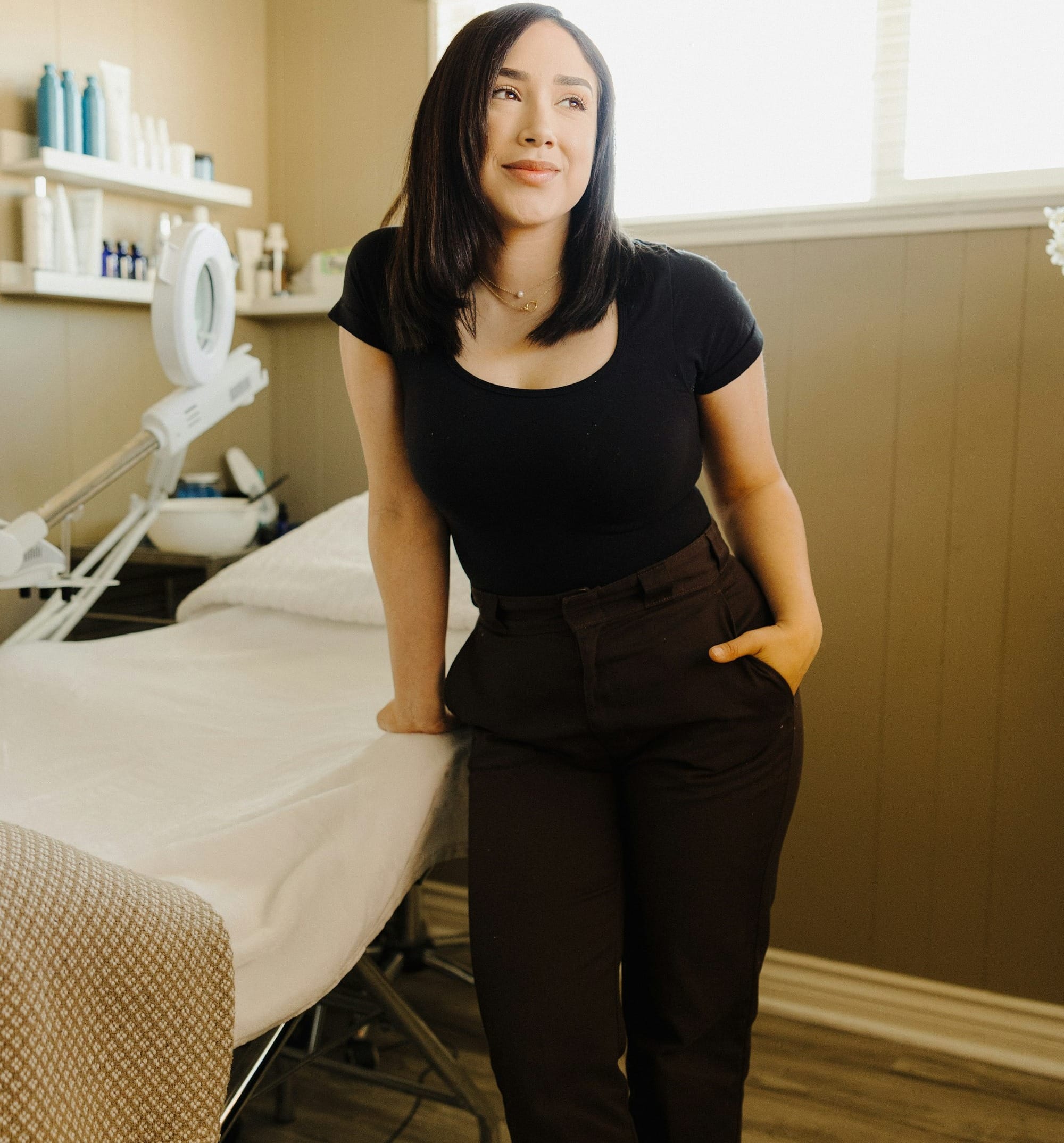
Don'ts:
Over-Exfoliate
Avoid over-exfoliating your skin with AHAs and BHAs, as this can lead to irritation, redness, and compromised skin barrier function.
Mix with Harsh Ingredients
Avoid combining AHAs and BHAs with other harsh ingredients like retinoids or benzoyl peroxide, as this may increase the risk of irritation.
Skip Sun Protection
Never skip sunscreen when using AHAs and BHAs, as unprotected sun exposure can cause sunburn, premature aging, and skin damage.
Use on Broken Skin
Refrain from using AHAs and BHAs on broken or compromised skin, including open wounds, cuts, or active acne lesions, as this can exacerbate irritation and inflammation.
Expect Overnight Results
Be patient and consistent with your skincare routine when using AHAs and BHAs. It may take several weeks to see visible improvements in skin texture, tone, and clarity.
Last Thoughts
Investing in the right skincare products is crucial for maintaining clear, healthy skin, especially for those with acne-prone skin. By understanding key ingredients, benefits, and how to use them effectively, you can take control of your skincare routine and achieve the complexion you desire.
Remember to consult with a dermatologist for personalized recommendations and guidance tailored to your specific skin type and concerns. With the right approach and skincare products, you can bid farewell to acne and hello to radiant, confident skin.
More Reads:
A Complete Guide To Hyaluronic Acid: A Must Read For Choosing Quality Products
15 Luxurious Skincare gifts sets perfect for pampering your sister!

Thumbnail - The Ultimate Guide to the 10 Best Ceramide Face Moisturizers
FAQs
We answer your questions
1. What are AHA's and BHA's?
Alpha Hydroxy Acids (AHA's) and Beta Hydroxy Acids (BHA's) are types of acids commonly used in skincare products for exfoliation and improving skin texture and tone.
2. How do AHA's and BHA's help the skin?
AHA's help to exfoliate the skin by targeting the skin's surface, while BHA's penetrate deeper into the skin, unclogging pores and reducing the appearance of acne and blemishes.
3. Can AHA's and BHA's be used together?
Yes, combining AHA's and BHA's in a skincare routine can yield effective results in improving overall skin texture and tone. However, it's important to start with lower concentrations and gradually increase to prevent irritation.
4. Are AHA's and BHA's suitable for all skin types?
AHA's and BHA's can benefit various skin types, but individuals with sensitive skin should be cautious and do a patch test before using products containing these acids.
5. How often should AHA's and BHA's be used?
It's recommended to start using AHA's and BHA's a few times a week and then gradually increase the frequency based on how your skin responds. Overuse can cause irritation and dryness.
6. What are the common do's and don'ts when using AHA's and BHA's?
Do's: Start with lower concentrations, wear sunscreen daily, follow with moisturizer. Don'ts: Over-exfoliate, combine with harsh skincare ingredients, use on broken skin.
Disclaimer
The information provided in this blog regarding acne is intended for general informational purposes only and should not be considered as medical advice. It is not a substitute for professional medical diagnosis, treatment, or advice. Always consult with a qualified healthcare provider or dermatologist for personalized recommendations and treatment options tailored to your specific skin condition. Individual results may vary, and the effectiveness of treatments can depend on various factors such as skin type, severity of acne, and underlying health conditions.
Resources
- Leung AKC, Barankin B, Lam JM, Leong KF, Hon KL. https://doi.org/10.7573/dic.2021-8-6. Published by Drugs in Context under Creative Commons License Deed CC BY NC ND 4.0. Article URL: https://www.drugsincontext.com/dermatology-how-to-manage-acne-vulgaris . Accessed 14/3/2024

